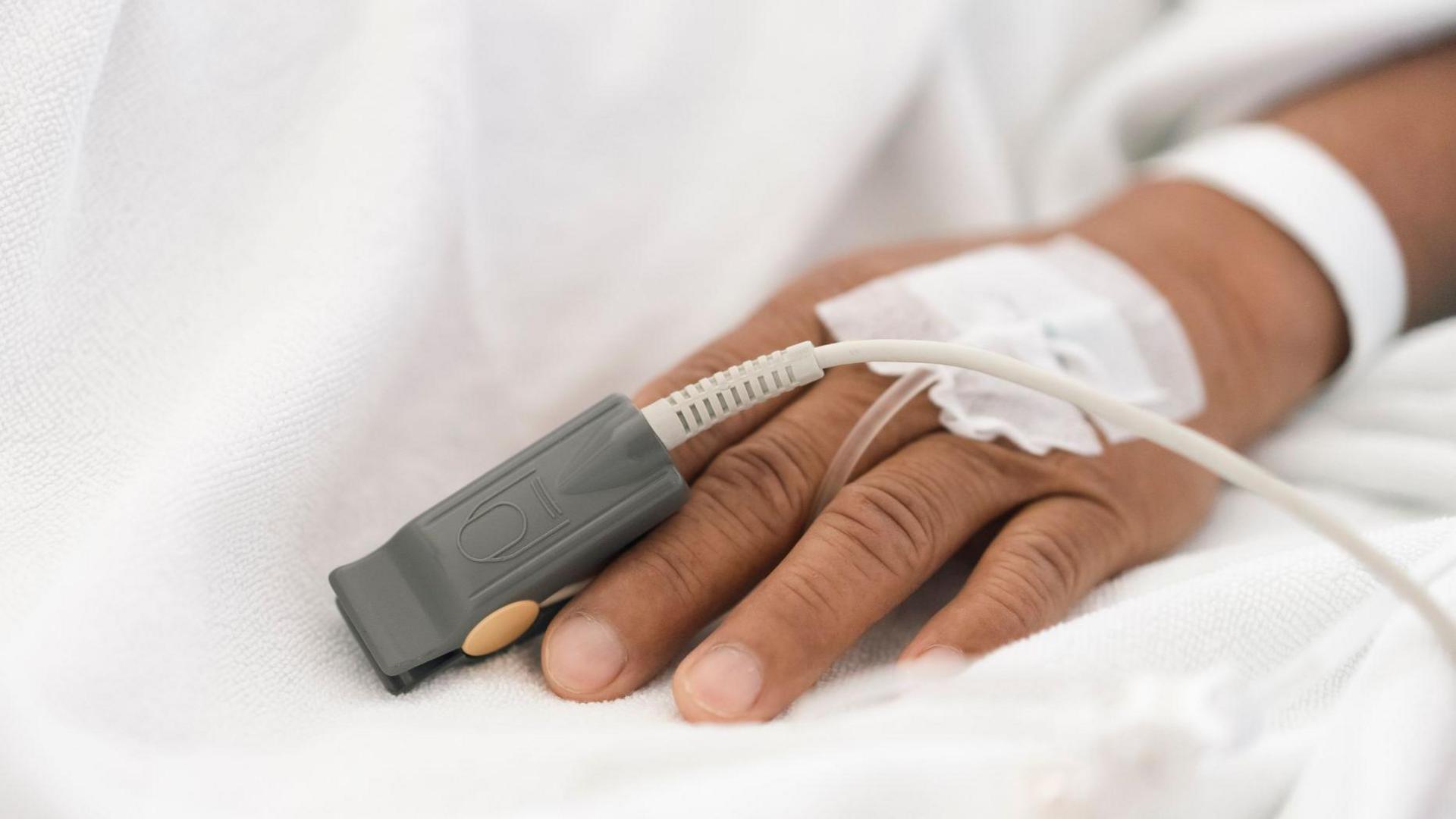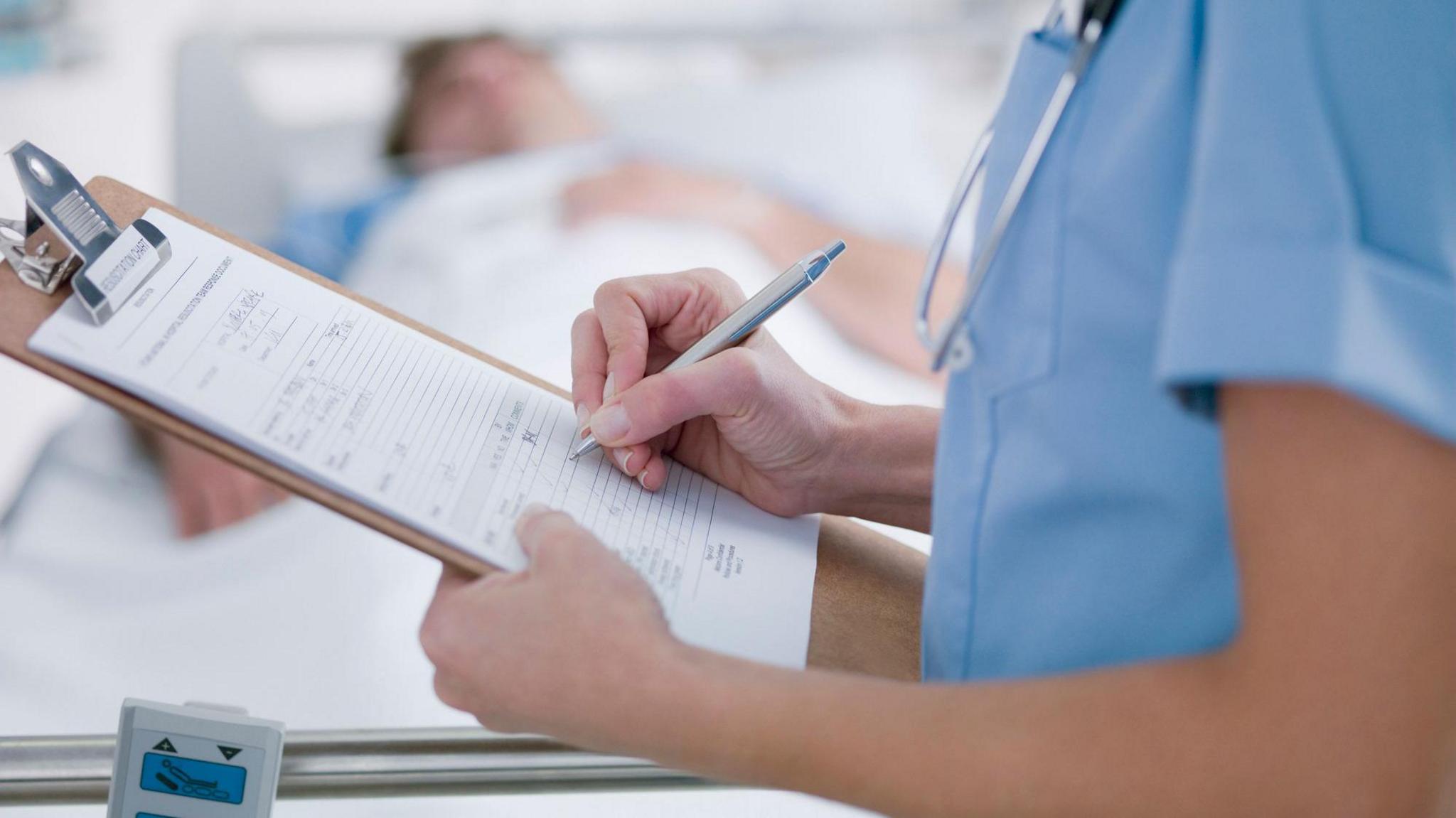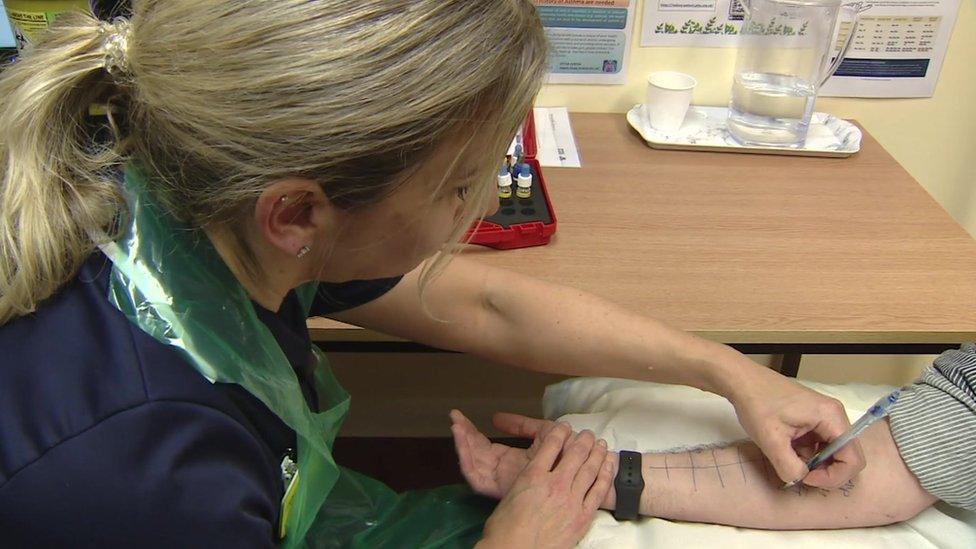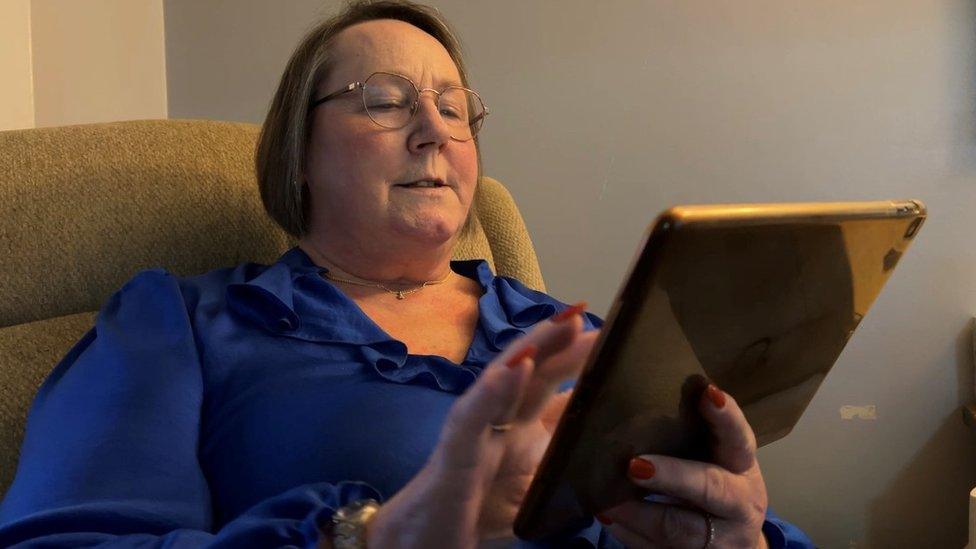Fewer patient checks could free up nurses - study

Heart rate and pulse are checked when looking at a patient's vital signs
- Published
A study has found hospital patients who have better vital signs could be monitored less frequently, without putting them at serious risk.
Researchers analysed 400,000 anonymous NHS patient records, external from hospitals in Portsmouth and Oxford.
Vital signs are tracked by measuring heart rate, blood pressure, temperature and pulse, which takes about five minutes.
It could mean nurses were freed up to prioritise sicker patients, experts said.
Nursing staff regularly monitor vital signs so that if a patient's condition deteriorates, it can be spotted early.
The patient is given a score based on these vital signs.
But checking too often can be annoying for patients and interfere with rest and sleep, which are important for recovery, the study said.
Nurses also needed to plan their time well to look after patients who need care, it added.

Vital signs are measured and converted into a score
Led by the University of Portsmouth and including Oxford University Hospitals NHS Foundation Trust and Portsmouth Hospitals University NHS Trust, the study examined patient records from between 2018 and 2021.
Researchers looked at three of the most serious risks for patients in hospital - dying, needing intensive care and having a cardiac arrest.
They also studied how likely it was a patient's condition would significantly deteriorate before their vital signs were checked again.
The study found patients with a low overall vital sign score could be monitored "less often" without being in danger of serious harm, freeing up nursing time so that patients with a higher score could be monitored "more often".
This could be achieved without employing more staff, it was concluded.
Prof Jim Briggs, who was in charge of the research, said: “Obviously, taking observations more frequently can reduce the risk, but that has to be offset by the extra nursing staff workload incurred and the disturbance to the patient - especially at night."
Follow BBC South on Facebook, external, X (Twitter), external, or Instagram, external. Send your story ideas to south.newsonline@bbc.co.uk, external or via WhatsApp on 0808 100 2240, external.
Related topics
See Also
- Published12 April 2024

- Published28 February 2024

- Published8 February 2024
